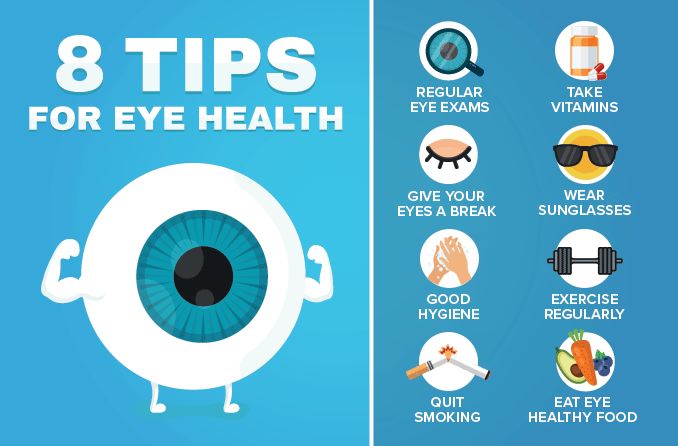Leading Cardiologist in Andalusia: Specialist Heart Care at Your Local Center
Leading Cardiologist in Andalusia: Specialist Heart Care at Your Local Center
Blog Article
Is Refractive Surgical Treatment Right for You? Variables to Think About for Better Eyecare
In the realm of eye treatment, the choice to undertake refractive surgery is a crucial one that demands thoughtful factor to consider. From the ins and outs of one's ocular health to the ins and outs of individual expectations and day-to-day behaviors, each aspect holds importance in the broader landscape of refractive surgical procedure candidateship.
Eye Wellness Examination
When considering refractive surgical procedure, an extensive eye wellness evaluation is critical to analyze the viability of the treatment for each individual. eye center andalusia. This assessment involves a series of assessments and examinations performed by an eye treatment professional to determine the general health and wellness of the eyes, the visibility of any hidden conditions, and the stability of the refractive mistake
During the evaluation, numerous variables are considered, such as the individual's clinical history, present eye prescription, corneal density, pupil size, and tear movie high quality. These assessments assist to identify any kind of contraindications to refractive surgical treatment, such as corneal problems, cataracts, or unattended eye infections. Additionally, the assessment aids to manage client assumptions regarding the potential outcomes of the surgery based upon their one-of-a-kind eye features.
Inevitably, the eye health examination is crucial in ensuring the safety and security and efficiency of refractive surgery, as it offers beneficial insights into the individual's eye health standing and helps establish one of the most appropriate treatment options for attaining optimal aesthetic outcomes. (cardiologist andalusia)
Way Of Life Assessment
A comprehensive lifestyle assessment is important in determining the suitability of refractive surgery for a person's aesthetic correction demands. Way of living variables such as line of work, leisure activities, and day-to-day activities play a critical role in the decision-making procedure concerning refractive surgery. As an example, people with professions that involve a high degree of exercise or exposure to environmental components may have various visual demands contrasted to those with inactive workdesk work. Recognizing exactly how an individual's way of living might impact their vision post-surgery is crucial for managing assumptions and making sure ideal end results.
Furthermore, way of life routines such as sports engagement, exterior activities, or even skincare regimens can influence the healing process and total success of refractive surgery. By carrying out a comprehensive way of life evaluation, eye care professionals can customize their recommendations and treatment plans to meet the one-of-a-kind needs of each patient, eventually leading to improved visual end results and complete satisfaction.
Assumption Positioning

Patients need to comprehend that while several people attain 20/20 vision or better following refractive surgery, some might still require glasses for certain activities like analysis or driving at evening. Handling these assumptions aids stop disappointment and discontentment post-surgery, leading to a more positive overall experience for the person.
Risk Analysis

Variables that may raise the danger of complications consist of age, specific medical conditions like autoimmune diseases, unstable vision prescription, thin corneas, and impractical individual expectations. Additionally, picking a proficient and experienced cosmetic surgeon, adhering to pre and post-operative care directions faithfully, and revealing any type of pertinent clinical history can aid alleviate threats.
To minimize the probability of difficulties, ophthalmologists perform complete pre-operative evaluations to recognize any kind of contraindications to surgical procedure. They likewise discuss the prospective threats and benefits with patients throughout the consultation procedure. By involving in open communication and shared decision-making, both the ophthalmologist and the patient can collaborate to determine if refractive surgical treatment is the best choice based upon private threat accounts and wanted end results.
Appointment Value
Considering the crucial function of educated decision-making in evaluating risks and possible complications in refractive surgery, the examination process holds considerable importance in directing patients in the direction of optimum outcomes. Throughout the assessment, the ophthalmologist examines the client's eye health, refractive errors, and overall viability for surgery. This first analysis is critical in identifying one of the most suitable treatment for each and every person, thinking about aspects such as corneal thickness, student dimension, and existing eye conditions.
Additionally, the consultation acts as a chance for people to review their assumptions, problems, and any questions they might have pertaining to the surgical procedure. Clear interaction in between the specialist and the client is important to make certain practical assumptions and a comprehensive understanding of the potential dangers and benefits involved.
In addition, the appointment enables the doctor to explain the different surgical choices readily available, their corresponding outcomes, and the post-operative care called for. This detailed conversation equips clients to make knowledgeable choices about their eye treatment, bring about far better satisfaction and end results post-surgery.
Conclusion
Finally, people considering refractive surgery needs to undertake a detailed eye wellness assessment, assess their lifestyle routines, straighten their assumptions with possible outcomes, analyze the associated risks, and prioritize examinations with eye treatment specialists. These aspects play an essential role in determining the viability of refractive surgical treatment for every individual, guaranteeing optimum end results and complete satisfaction with the treatment.
Individuals considering refractive surgical treatment frequently have high expectations concerning the results, anticipating perfect vision without the need for glasses or call lenses. While refractive surgery can greatly improve vision and minimize dependence on visual help, it is critical for individuals to understand that results Our site may vary based on private elements such as the level of refractive error, corneal density, and general eye this article health.
By engaging in open interaction and shared decision-making, both the person and the ophthalmologist can work with each other to determine if refractive surgical treatment is the best selection based on private threat profiles and preferred outcomes.
Thinking about the vital duty of notified decision-making in evaluating threats and prospective issues in refractive surgical procedure, the examination procedure holds considerable value in guiding clients in the direction of optimal end results. During the consultation, the ophthalmologist examines the person's eye health and wellness, refractive mistakes, and total viability for surgical treatment.
Report this page